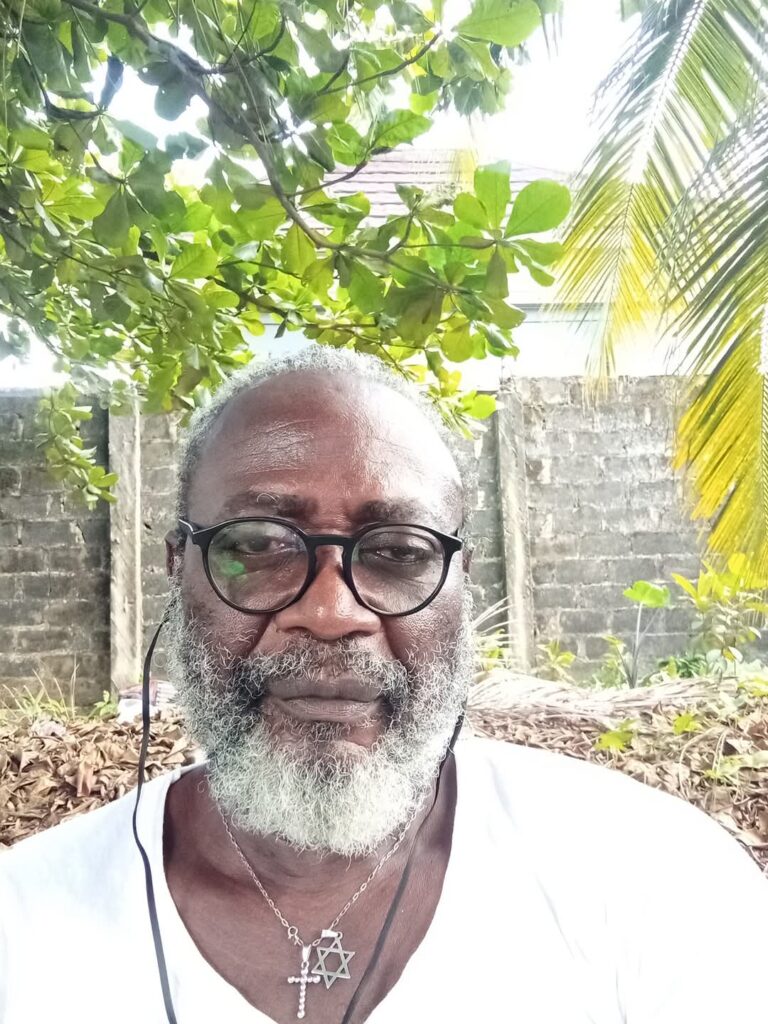Rivers State Crisis: Emergency Rule a Slap on Niger Delta People – Dr. Waritimi
...Renowned artist and Niger Delta University lecturer condemns Federal Government’s approach
Dr. Pius Obodo Waritimi, a renowned artist with over five decades of creative engagement and a lecturer in the Department of Fine and Applied Arts at the Niger Delta University (NDU), has expressed deep concerns over the recent declaration of a state of emergency in Rivers State.

In an exclusive interview with Niger Delta Herald, Dr. Waritimi described the move as not only unconstitutional but also as an affront to the collective dignity of the oil-rich Niger Delta region.
“What happened in Rivers State is clearly unconstitutional,” he stated firmly. “It is a slap on the faces of the people of the Niger Delta. We cannot be treated like second-class citizens in our own country.”
Double Standards in Crisis Response
Dr. Waritimi criticized what he termed the Federal Government’s selective approach in handling security crises across the country. He questioned why similar or worse cases of violence in the northern parts of Nigeria have not attracted the same level of intervention.
“There are killings going on inhe North daily, yet the President never thought it necessary to introduce emergency rule in those places,” he said. “But the moment there’s a political disagreement in Rivers, an emergency is declared. This shows how skewed the Nigerian system is.”
Faults Call for Restructuring Under Flawed Constitution
While many voices in the South have called for restructuring, Dr. Waritimi believes that such moves would remain ineffective under the current constitutional framework. He pointed out that the 1999 Constitution is fundamentally flawed and designed to favour a particular section of the country.
“Let’s stop deceiving ourselves. The 1999 Constitution is not for all Nigerians,” he argued. “It was crafted to favour a section of the country and marginalize the rest. So, talking about restructuring without addressing that is an exercise in futility.”
A Lone Voice for Justice
Dr. Waritimi, who was one of the lone protesters during the execution of the late environmental activist Ken Saro-Wiwa, recalled his decades-long struggle for justice and equity in the Niger Delta. He lamented the ongoing imbalance in the country’s revenue-sharing formula, which he said continues to breed resentment and unrest.
“The revenue sharing formula is a big insult to the region that feeds this country,” he declared. “Until the right things are done — from resource control to fair representation — Nigeria will continue to be in crisis in all sectors.”
Profile: Dr. Pius Obodo Waritimi – Artist, Activist, Educator
Dr. Pius Obodo Waritimi is a respected figure in the Nigerian art and intellectual community. With over 50 years of dedicated practice, he is celebrated for his mastery in both traditional and contemporary forms of visual expression. His artistic journey began in the early 1970s, and over the decades, his work has been showcased in national and international exhibitions.
A firm believer in the power of art as a tool for social change, Dr. Waritimi has used his creative voice to comment on issues of injustice, environmental degradation, and political marginalization in the Niger Delta. He is especially known for his politically conscious murals, sculptures, and mixed media works that document the struggle of his people.
As a lecturer at Niger Delta University, Dr. Waritimi has mentored generations of artists and cultural advocates. His teaching style blends studio practice with philosophical reflection, instilling in his students a deep sense of identity, resilience, and purpose.
His activism dates back to the early days of the Ogoni struggle, and he remains one of the few individuals who openly protested the execution of Ken Saro-Wiwa and other environmental activists in the 1990s.
> “Art must speak. Art must provoke. Art must inspire,” he once said during a campus symposium. “Otherwise, it is merely decoration.”
Dr. Waritimi continues to be a vocal advocate for equity in governance, justice for the Niger Delta, and the preservation of indigenous art and identity.


